Step by step of creating a Gardens DAO, a DAO Framework
@boris: I connected my wallet, choosing the #Polygon network and using Trust Wallet on my iOS phone via Wallet Connect.
Choose New Token or Existing
I chose new – we don’t have a SAD Token
Fill out Profile
Note: we need consistent images for this.
TODO Setup a brand / images section in the #researchwiki and upload all the originals. Also: licensing! We probably want to make sure its owned by SongADAO but people can use it with permission? But not to imply that SongADAO endorses something when it doesn’t?
Here are the images I used:
Header
This is the slightly rectangular one from SAD world app.

Garden Logo
This is the same as the round icon here.
Token Icon
This has the phrase Song A DAO, from the Enter Noble landing page. Original is WebP, which is not supported, so I converted into a bad PNG.

Garden Tokenomics
@boris: This is where we have to create a brand new token. I’m going to go ahead and create a
SADTPtoken on Polygon and issue 25K to me and to @jonathanmann – just so we can experiment.The option to create a common pool for a Gnosis Safe right away is pretty great.
Configure Tokenomics
Honeyswap is a liquidity provider Honeyswap - 1Hive that is on xDAI (now GnosisChain) and Polygon. The front end is here Honeyswap Interface
@boris: I definitely know nothing about this stuff. I’m going to go ahead and put some money through this to figure it out. You “pay” for your Garden by having some liquidity.
The honey token is worth a fair bit per token, so I initiated a trade for Polygon (MATIC) to HNY, for 1 HNY to start.
I had to go over to HoneySwap on Polygon to make this trade happen. I ended up going through SushiSwap rather than this screenshot.
So from this initial liquidity, these SADTP tokens are “worth” 6¢USD, and I have some HNY to setup future gardens too.
Issuance Policy
OK, I definitely don’t know anything about this so I am going to leave the defaults.
Configure Governance
@boris the notes under the ? on this page are really awesome and I have pasted them in below. I really don’t know how this interacts with SongADAY Co-Op LLA, but in brief, and I don’t think this will work for us out of the box.
Coventant: A covenant is a document, stored on IPFS, which explains what the Garden is about in plain English. It establishes values, rules, and customs. And is used to protect the Garden from malicious actors without sacrificing the agency of its members. Take 1Hive’s Covenant as an example.
Action Deposit is the amount of collateral tokens that will be locked every time an action (proposal for funding, signaling proposal and decision vote) is submitted.
Challenge Deposit is the amount of collateral tokens that will be locked every time an action (proposal for funding, signaling proposal or decision vote) is challenged.
The Settlement Period is the amount of time the proposal author has to either accept a settlement or raise the dispute to Celeste after a proposal has been challenged.
Conviction Voting
@boris this would be another page where I have no idea what I’m doing. Let’s document the ? marks!
Broadly speaking, the concept of conviction voting as I Boris understand it, is that you could request very small amounts – e.g. $50 to pay for registering
songadao.orgfor 5 years – and you would need a very low conviction to just get those funds. If $100K is asked for, then many more people would need to agree to the proposal.
Conviction Growth is the number of days it takes to accumulate or reduce voting power by 50%. For example, if the conviction growth is set to 1 day your tokens must support a proposal for 1 day to reach 50% of those tokens max voting power, 2 days to reach 75%, 3 days to reach 87.5%, etc.
Spending Limit is the the maximum percentage of total funds an individual proposal can request from the common pool.
Minimum Conviction is the mininum percentage of tokens that are used for calculating the threshold to pass any proposal.
Decision Voting
Support is the relative percentage of tokens that are required to vote “Yes” for a proposal to be approved. For example, if “Support” is set to 50%, then more than 50% of the tokens used to vote on a proposal must vote “Yes” for it to pass.
Minimum Approval is the percentage of the total token supply that is required to vote “Yes” on a proposal before it can be approved. For example, if the “Minimum Approval” is set to 20%, then more than 20% of the outstanding token supply must vote “Yes” on a proposal for it to pass.
Vote Duration is the length of time that the vote will be open for participation. For example, if the Vote Duration is set to 24 hours, then tokenholders have 24 hours to participate in the vote.
Execution Delay is the required amount of time after a proposal passes for the proposal to be executed. This allows everyone to react to the outcome and make decisions before the effects of the vote are realised.
Delegated Voting Period is the period of time, within the Vote Duration, when stewards can cast votes that have been delegated to them. When this period ends stewards can no longer vote.
Quite Ending Period is the duration before the end of a vote to detect non-quiet endings. Non-quiet endings are endings which involve a late swing in the vote.
Review Information
This is a big review page!
Launch your Garden
I moved on to this page, but I’m definitely not ready to launch this yet.
Conveniently, all of my work has been saved, and I can come back to this in the future.

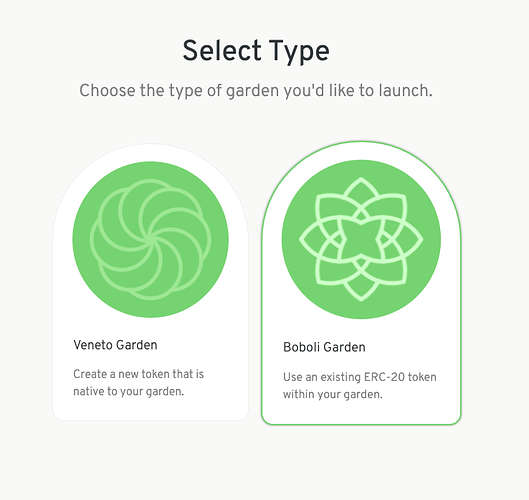
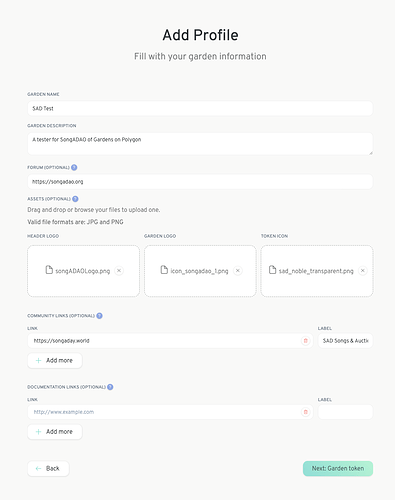

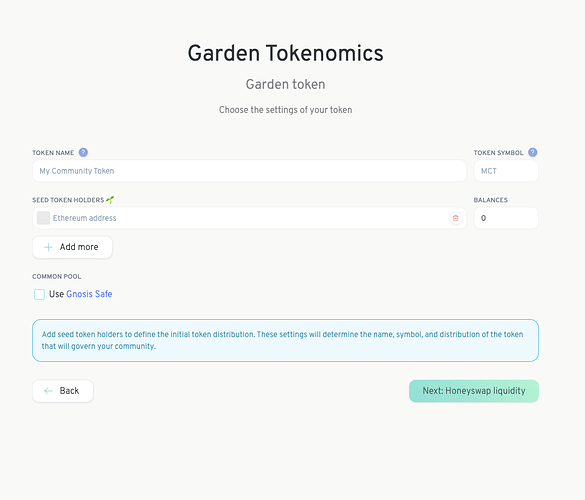
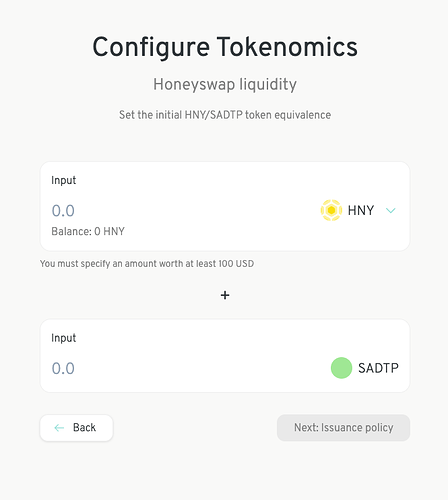
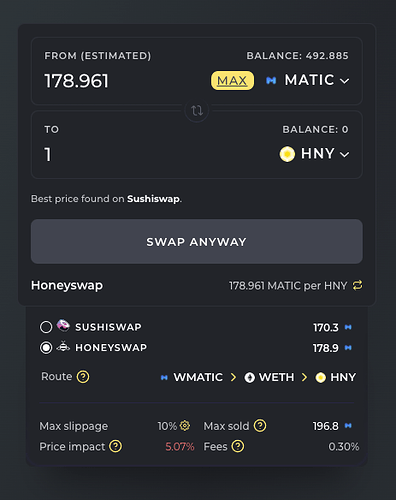
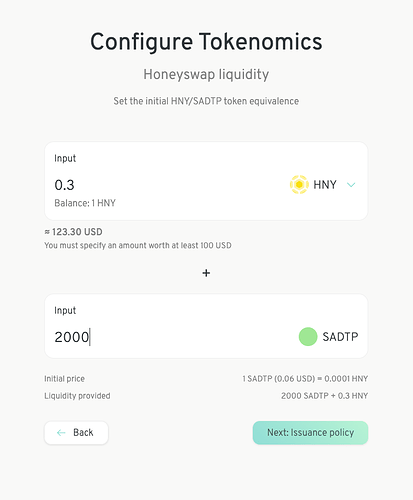
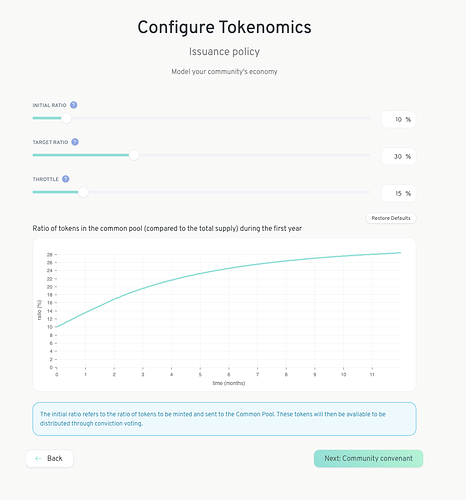
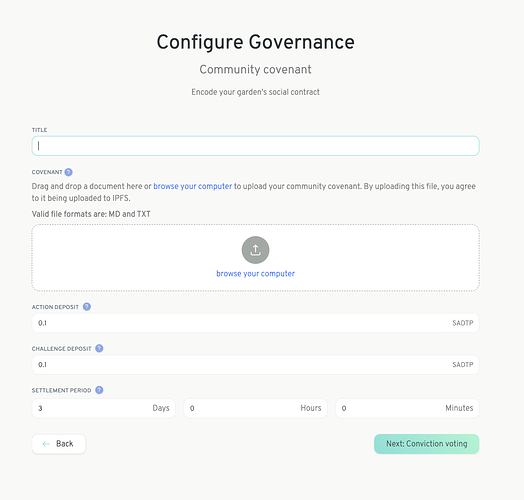
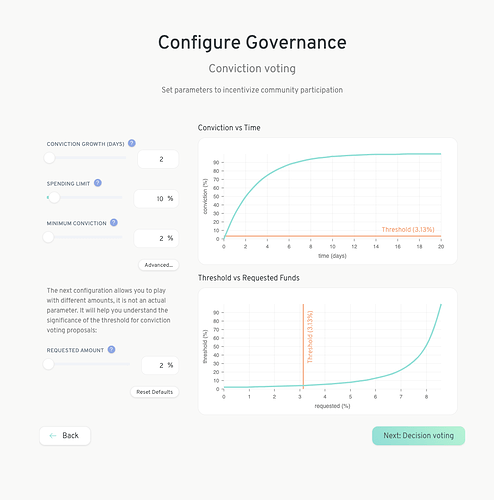
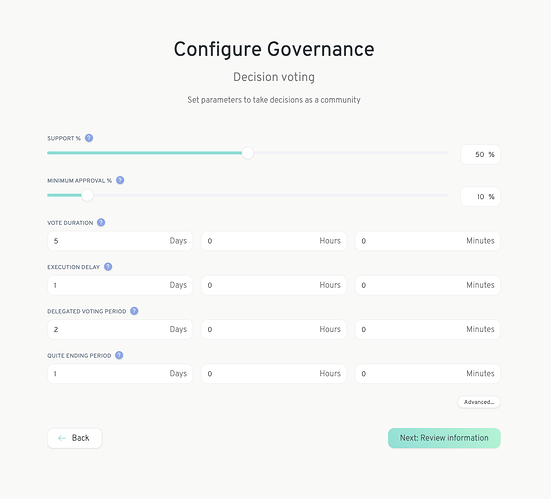
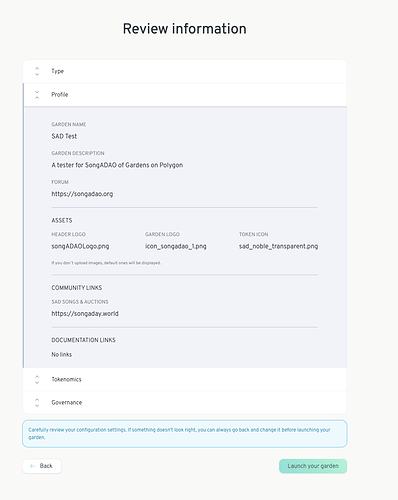
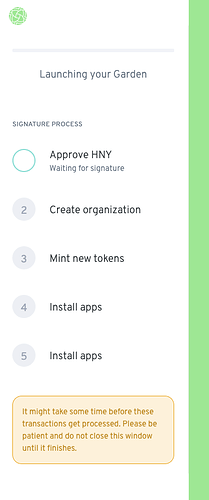
 I just posted basically that same comment in our internal channel.
I just posted basically that same comment in our internal channel.